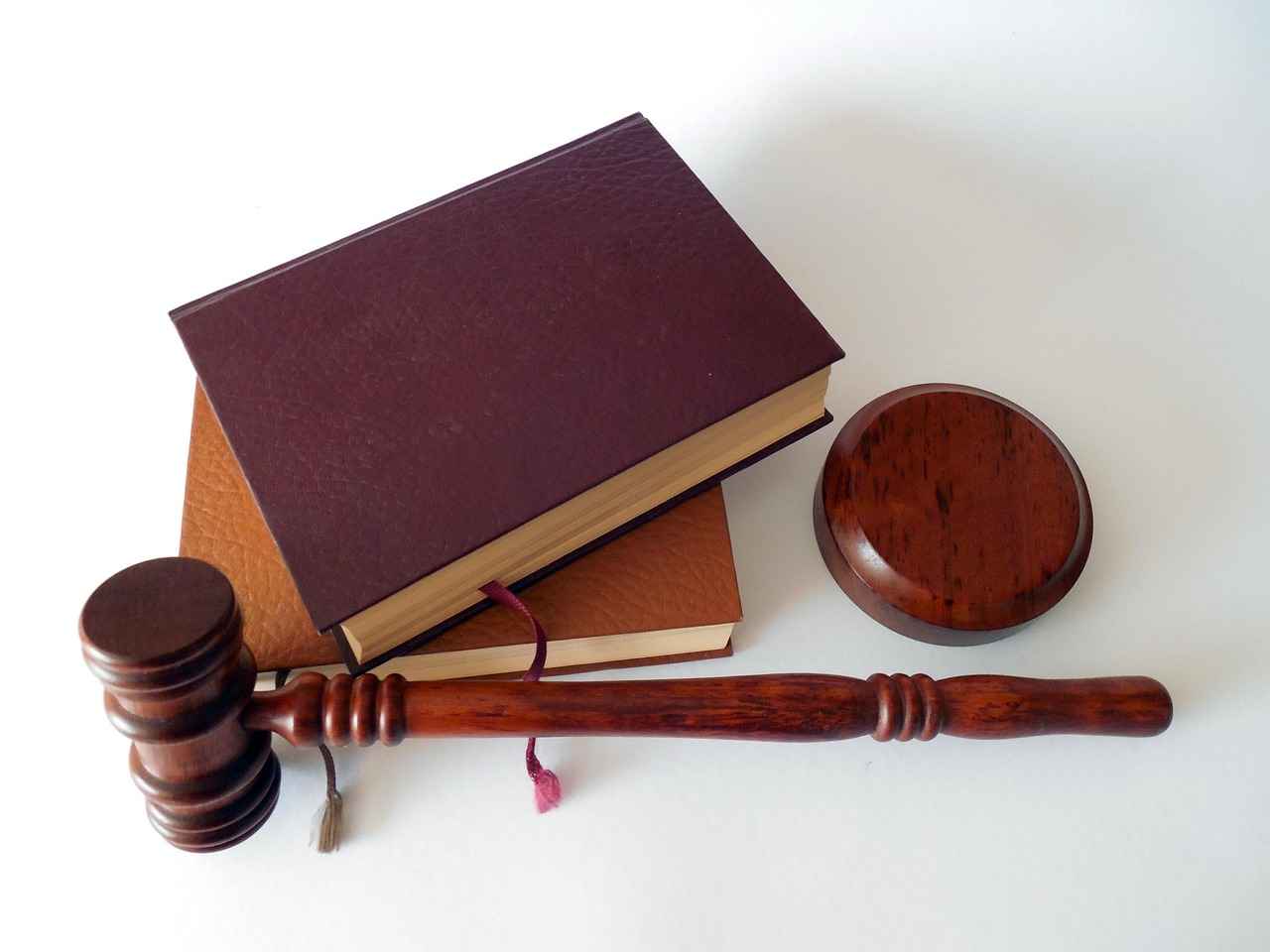This article serves as a comprehensive guide for individuals seeking the best lawyers and attorneys in Lubbock, Texas. It covers essential factors, tips, and resources to ensure effective legal representation tailored to your specific needs.
Understanding Your Legal Needs
Identifying your specific legal requirements is crucial before embarking on your search for a lawyer. Start by assessing your situation to determine the type of legal assistance you require. Are you facing a family law issue, such as divorce or child custody? Or perhaps you need a criminal defense attorney or someone specialized in personal injury cases? Understanding these needs will help narrow your search effectively.
Researching Local Law Firms
Conducting thorough research on local law firms is essential. Utilize online resources, including legal directories, to evaluate different firms. Look for websites that provide detailed information about their services, areas of expertise, and client testimonials. Additionally, reading online reviews on platforms like Google and Yelp can give you insight into the firm’s reputation.
Evaluating Lawyer Qualifications
Assessing the qualifications of potential lawyers is key to making an informed choice. Consider factors such as their educational background, years of experience, and specialization in relevant areas of law. A lawyer’s track record in handling cases similar to yours can be a good indicator of their capability.
Checking Reviews and Testimonials
Reviews and testimonials can provide valuable insights into a lawyer’s reputation. Look for feedback on platforms like Avvo and Yelp. Pay attention to patterns in reviews, as they can highlight strengths or weaknesses in a lawyer’s practice.
Understanding Legal Fees and Costs
Legal fees can vary significantly based on the lawyer’s experience and the complexity of your case. Familiarize yourself with common fee structures, including hourly rates, flat fees, and contingency fees. This understanding will help you budget for legal services effectively and avoid unexpected costs.
Scheduling Initial Consultations
Most lawyers offer initial consultations that are crucial for assessing compatibility. During these meetings, you can discuss your case, ask questions, and gauge the lawyer’s approach. Prepare a list of questions to maximize the effectiveness of this consultation.
Assessing Communication Skills
Effective communication is vital in legal representation. Evaluate how well the lawyer communicates during your initial meetings. Are they responsive to your inquiries? Do they explain legal concepts clearly? A lawyer who communicates effectively can make the legal process less daunting.
Considering Local Expertise
Hiring attorneys familiar with Lubbock’s laws and legal landscape can be a significant advantage. Local lawyers often have established relationships within the court system and a better understanding of local regulations, which can benefit your case.
Exploring Specialized Practices
Some legal matters require specialized knowledge. If you have a unique case, such as immigration law or business law, seek out lawyers who focus on those areas. Their expertise can provide you with tailored advice and representation.
Understanding the Lawyer-Client Relationship
A strong lawyer-client relationship is essential for successful outcomes. Look for qualities such as trust, respect, and mutual understanding. A lawyer should be someone you feel comfortable discussing sensitive issues with, as this can greatly impact the outcome of your case.
Utilizing Bar Association Resources
Bar associations can be invaluable resources for finding qualified lawyers. Leverage the Texas State Bar and local bar associations in Lubbock for referrals and guidance. They often have directories and resources that can assist you in your search.
Networking and Recommendations
Personal recommendations can be invaluable when searching for a lawyer. Reach out to friends, family, and colleagues for their experiences and referrals. Networking can lead you to trustworthy lawyers who may not be as visible online.
Making the Final Decision
Choosing the right attorney requires careful consideration. Compare your options based on qualifications, fees, and communication styles. Trust your instincts as you make your final decision, as a good lawyer-client relationship is crucial for effective legal representation.

Understanding Your Legal Needs
When navigating the complex landscape of legal issues, is paramount. This section aims to provide clarity on how to assess your situation effectively, ensuring you engage the right legal representation. Whether your circumstances involve family law, criminal defense, or personal injury, identifying your specific requirements is the first step toward achieving a favorable outcome.
Assessing Your Situation
- Identify the Nature of Your Issue: Begin by clearly defining the legal issue at hand. Are you facing a divorce, a criminal charge, or seeking compensation for an injury? Each of these situations requires a different type of legal expertise.
- Evaluate the Complexity: Some legal matters are straightforward, while others can be intricate and involve multiple legal areas. Assessing the complexity of your case will help determine if you need a generalist or a specialist.
Types of Lawyers to Consider
- Family Law Attorneys: If your issue involves divorce, child custody, or adoption, a family law attorney will have the necessary knowledge and experience to guide you through the process.
- Criminal Defense Lawyers: Facing criminal charges requires a skilled defense attorney who understands the nuances of criminal law and can navigate the legal system effectively.
- Personal Injury Lawyers: If you have suffered an injury due to someone else’s negligence, a personal injury lawyer can help you seek the compensation you deserve.
Questions to Ask Yourself
- What is the specific legal issue I am facing?
- Do I need a lawyer with specialized knowledge in a particular area of law?
- How urgent is my situation, and what are the potential consequences of inaction?
Gathering Information
Once you have a clear understanding of your legal needs, gathering relevant information is crucial. This may include documentation related to your case, such as contracts, police reports, or medical records. Having this information organized will not only assist your lawyer but also empower you to make informed decisions.
Consulting with Professionals
Consider scheduling consultations with multiple attorneys to discuss your situation. This will allow you to gauge their expertise and approach, helping you find the right fit for your needs. During these meetings, be prepared to ask questions about their experience with cases similar to yours, their strategies, and their fee structures.
In summary, understanding your legal needs is a foundational step in the process of finding the right lawyer. By assessing your situation, identifying the type of attorney you require, and gathering pertinent information, you will be well-equipped to make informed decisions that will lead to successful legal outcomes.

Researching Local Law Firms
is a critical step in securing effective legal representation in Lubbock, Texas. With numerous law firms available, it can be overwhelming to choose the right one for your needs. This section will explore various strategies to help you evaluate different firms and make an informed decision.
First and foremost, online reviews play a significant role in assessing the reputation of local law firms. Websites like Google, Avvo, and Yelp provide platforms for clients to share their experiences. When reading reviews, look for patterns in feedback rather than focusing solely on individual comments. Pay attention to aspects such as the lawyer’s communication skills, responsiveness, and overall client satisfaction. A law firm with consistently positive reviews is likely to provide reliable service.
Next, visiting firm websites is essential for gathering information about their practice areas, attorney profiles, and client testimonials. A well-designed website should clearly outline the firm’s specialties, experience, and success stories. Look for details about the attorneys’ educational backgrounds, years of practice, and notable cases they have handled. This information can help you gauge whether the firm has the necessary expertise in the specific legal area you require.
Additionally, exploring legal directories specific to Lubbock can provide valuable insights. Directories like the Texas State Bar Association’s website allow you to search for attorneys based on their specialties and geographic location. These directories often include essential information such as the attorney’s license status, disciplinary history, and peer reviews. Utilizing these resources can help you create a shortlist of potential candidates.
Another effective strategy is to seek referrals from friends, family, or colleagues who have previously worked with local attorneys. Personal recommendations can offer a level of trust and insight that online reviews may not provide. Ask about their experiences, the quality of service received, and whether they would recommend the attorney for your specific legal needs.
Lastly, consider attending local legal seminars or community events where attorneys may be speaking or participating. This can provide an opportunity to meet lawyers in person, ask questions, and get a sense of their communication style and approachability. Networking within your community can lead to valuable connections and recommendations.
In summary, conducting thorough research on local law firms involves leveraging online reviews, firm websites, legal directories, personal referrals, and community engagement. By employing these strategies, you can effectively evaluate different firms and select the best attorney to meet your legal needs in Lubbock, Texas.

Evaluating Lawyer Qualifications
When it comes to selecting a lawyer, evaluating qualifications is a critical step that cannot be overlooked. The right attorney can make a significant difference in the outcome of your legal situation. Understanding what to look for in a lawyer’s qualifications will help you make an informed choice. Here are the essential factors to consider:
- Education: A lawyer’s educational background is often the first indicator of their expertise. Look for attorneys who have graduated from accredited law schools and have performed well academically. Many successful lawyers also engage in ongoing education to stay current with changes in the law.
- Experience: Experience is a vital factor in assessing a lawyer’s qualifications. Consider how long the attorney has been practicing law and whether they have handled cases similar to yours. A lawyer with extensive experience in a particular field is likely to be more adept at navigating the complexities of your case.
- Specialization: The legal field is broad, encompassing various areas such as family law, criminal defense, personal injury, and more. It is crucial to find a lawyer who specializes in the area relevant to your case. Specialized lawyers are often more knowledgeable about specific laws, regulations, and procedures, which can significantly benefit your situation.
- Track Record: A lawyer’s success rate can provide insight into their capabilities. Ask about their past cases and outcomes. Many attorneys share their success stories on their websites or in consultations, which can help you gauge their effectiveness.
- Professional Affiliations: Membership in professional organizations, such as the American Bar Association or local bar associations, can indicate a lawyer’s commitment to their profession. These affiliations often require adherence to ethical standards and ongoing education.
- Client Reviews: Testimonials and reviews from previous clients can offer valuable insight into a lawyer’s qualifications. Look for feedback regarding their communication skills, responsiveness, and overall effectiveness in handling cases.
- Communication Skills: A qualified lawyer should possess excellent communication skills. They should be able to explain complex legal concepts in a way that you can understand. During initial consultations, pay attention to how well they listen to your concerns and answer your questions.
In summary, evaluating lawyer qualifications involves looking at their education, experience, specialization, track record, professional affiliations, client reviews, and communication skills. Taking the time to assess these factors will help ensure that you choose the right attorney for your legal needs. Remember, the right lawyer can make all the difference in achieving a favorable outcome in your case.

Checking Reviews and Testimonials
When it comes to selecting a lawyer, reviews and testimonials serve as a critical resource for understanding a lawyer’s reputation and the quality of their services. In the digital age, potential clients have unprecedented access to feedback from previous clients, which can significantly inform their decision-making process.
To effectively utilize reviews, start by exploring various platforms such as Google, Avvo, and Yelp. These sites aggregate client experiences and provide ratings that can help you gauge a lawyer’s performance. Here’s how to navigate these platforms:
- Google Reviews: Search for the lawyer or law firm on Google and look for the review section on the right side of the search results. Pay attention to the overall star rating and read through individual comments for detailed insights.
- Avvo: This platform specializes in legal services and provides ratings based on a lawyer’s experience, disciplinary history, and client reviews. It’s an excellent resource for understanding a lawyer’s qualifications and client satisfaction.
- Yelp: While not exclusively legal-focused, Yelp offers a wealth of client reviews. Look for patterns in feedback, such as consistent praise or criticism regarding specific aspects of the lawyer’s practice.
When interpreting reviews, consider the following factors:
- Volume of Reviews: A lawyer with numerous reviews may offer a more reliable picture of their capabilities than one with only a few.
- Recency: Recent reviews are more relevant as they reflect the lawyer’s current practices and client interactions.
- Specificity: Look for detailed accounts of client experiences rather than vague statements. Specific feedback can highlight strengths and weaknesses.
It’s also essential to approach reviews with a critical eye. Some negative reviews may stem from unrealistic client expectations or personal conflicts rather than genuine professional shortcomings. Conversely, a few overly positive reviews may be fabricated or exaggerated. Therefore, seek to establish a balanced view by reading a variety of testimonials.
Additionally, consider reaching out to former clients directly, if possible. Personal conversations can provide deeper insights and help you gauge whether a lawyer is the right fit for your needs.
In summary, reviews and testimonials are invaluable tools in the lawyer selection process. By leveraging feedback from various platforms and approaching it with a discerning perspective, you can make a more informed choice that aligns with your legal needs.

Understanding Legal Fees and Costs
Legal fees can vary significantly depending on various factors, including the type of legal service required, the complexity of the case, and the lawyer’s experience. Understanding the different fee structures can help you budget for legal services more effectively and avoid unexpected expenses.
- Hourly Rates: Many lawyers charge by the hour for their services. This rate can vary widely based on the lawyer’s experience, the area of law, and the geographical location. In Lubbock, Texas, hourly rates might range from $150 to $500 or more. It’s essential to ask for an estimate of how many hours your case might take to get a better grasp on potential costs.
- Flat Fees: For specific legal services, such as drafting a will or handling an uncontested divorce, lawyers may offer a flat fee. This structure allows clients to know upfront what the total cost will be, making budgeting easier. However, it’s crucial to clarify what services are included in the flat fee to avoid any surprises.
- Contingency Fees: In personal injury cases, lawyers often work on a contingency fee basis. This means that the lawyer only gets paid if you win your case. Typically, the lawyer will take a percentage of the settlement or judgment, which can range from 25% to 40%. This arrangement can be beneficial for clients who may not have the funds to pay upfront legal fees.
- Retainers: Some lawyers require a retainer fee, which is an upfront payment that secures their services. The lawyer will then bill against this retainer as they work on your case. It’s important to understand how the retainer is calculated and what happens if the retainer runs out.
When considering legal fees, it’s also important to inquire about any additional costs that may arise, such as court fees, filing fees, and costs for expert witnesses. These expenses can add up quickly, so having a comprehensive understanding of all potential costs will help you avoid financial surprises.
To make informed decisions, always ask for a detailed breakdown of the fee structure during your initial consultation. This transparency will not only help you understand what you are paying for but will also build trust with your lawyer. By evaluating the fee structures and understanding your financial obligations, you can choose a legal representative that fits your budget and meets your needs.
In summary, being well-informed about the various legal fee structures will empower you to make better choices when seeking legal representation. Always remember to ask questions and clarify any uncertainties regarding fees to ensure a smooth and clear financial arrangement with your attorney.

Scheduling Initial Consultations
When it comes to selecting the right lawyer, the initial consultation is a pivotal step in the process. This meeting serves as an opportunity for both you and the attorney to evaluate whether you can work together effectively. Understanding what to expect during these consultations and how to prepare can significantly enhance your experience and decision-making.
During your initial consultation, you can anticipate a structured yet open dialogue. Most lawyers will begin by asking you to explain your legal issue in detail. This is your chance to present the facts of your case, and it’s essential to be as clear and concise as possible. Expect the attorney to ask probing questions to gain a deeper understanding of your situation. This will help them assess the complexities of your case and determine the best course of action.
Preparation is key to making the most of your initial consultation. Here are some practical steps to consider:
- Gather Relevant Documents: Bring any documentation that relates to your case, such as contracts, emails, or court papers. Having these documents on hand can provide the lawyer with a clearer picture of your situation.
- Prepare a List of Questions: Think about what you want to know from the lawyer. This could include questions about their experience, approach to cases like yours, and fee structures. A well-prepared list ensures you cover all your concerns.
- Be Honest: Transparency is crucial in building a strong lawyer-client relationship. Share all relevant details, even those that may seem unfavorable. This will enable the lawyer to give you the best advice possible.
While you are evaluating the lawyer, remember that they are also assessing you as a potential client. They will consider factors such as your willingness to cooperate, your understanding of the legal process, and your ability to communicate effectively. Demonstrating that you are engaged and informed can make a positive impression.
Compatibility with your lawyer is essential for a successful legal partnership. During the consultation, pay attention to how the lawyer communicates. Are they approachable and willing to listen? Do they explain complex legal terms in a way that you can understand? These factors are vital in determining whether you will feel comfortable discussing sensitive issues with them in the future.
After the consultation, take some time to reflect on your experience. Consider how well the lawyer addressed your questions and concerns and whether you felt a connection. If you decide to proceed, make sure to clarify the next steps, including how to formally retain their services and any initial fees required.
In conclusion, scheduling an initial consultation is a critical step in finding the right legal representation. By understanding what to expect, preparing effectively, and assessing compatibility, you can make an informed decision that aligns with your legal needs.

Assessing Communication Skills
Effective communication is a cornerstone of successful legal representation. When you engage a lawyer, their ability to convey complex legal concepts in a clear and concise manner is essential. This section will delve into the significance of communication skills in the legal field, outline how to evaluate a lawyer’s responsiveness, and discuss the importance of approachability in fostering a successful attorney-client relationship.- Importance of Clear Communication: Your lawyer should be able to explain legal terms, procedures, and strategies in a way that you can easily understand. This clarity not only helps you make informed decisions but also reduces anxiety during the legal process.
- Evaluating Responsiveness: A lawyer’s responsiveness can be a strong indicator of their communication skills. You should assess how quickly they return calls, respond to emails, and provide updates on your case. A lawyer who is prompt in their communication demonstrates respect for your time and concerns.
- Approachability Matters: Legal matters can be intimidating, and having a lawyer who is approachable can make a significant difference. You should feel comfortable discussing sensitive issues with your attorney. During initial consultations, gauge whether the lawyer listens actively and makes you feel valued.
To assess these communication skills effectively, consider the following strategies:
1. Schedule an Initial Consultation: - Use this opportunity to ask questions about your case and observe how the lawyer responds. 2. Ask for Clarification: - If you do not understand something, see how the lawyer reacts to your request for clarification. A good lawyer will be patient and willing to explain further. 3. Review Communication Channels: - Inquire about how you can reach your lawyer and what response times you can expect. This will help set expectations for your communication moving forward.
Moreover, effective communication extends beyond verbal exchanges. Written communication, such as emails and legal documents, should also be clear and professional. Pay attention to the lawyer’s written correspondence; it should reflect their attention to detail and commitment to your case.
In conclusion, assessing communication skills is crucial when selecting a lawyer. Clear communication, responsiveness, and approachability are key attributes that contribute to a productive attorney-client relationship. By focusing on these elements, you can ensure that your legal representation will be effective and supportive throughout your legal journey.

Considering Local Expertise
When navigating the complexities of legal matters, having an attorney with a deep understanding of local laws and regulations can be a game-changer. Local expertise is not just a bonus; it can significantly influence the outcome of your case. This section delves into the myriad benefits of hiring attorneys who are well-versed in Lubbock’s unique legal landscape.
One of the primary advantages of hiring a local attorney is their familiarity with Lubbock’s courts and legal procedures. Each jurisdiction may have its own rules and nuances, which can affect how cases are handled. An attorney who regularly practices in Lubbock will understand these intricacies, ensuring that your case is managed effectively from the start.
Moreover, local attorneys often have established relationships with judges, court clerks, and other legal professionals within the community. These connections can facilitate smoother communication and may provide strategic advantages in negotiations or court proceedings. For instance, a lawyer who knows the tendencies of a particular judge can tailor their arguments more effectively, increasing the likelihood of a favorable outcome.
Another critical factor is the attorney’s insight into local laws that may not be as prominent in broader legal texts. For example, certain local ordinances or state laws may apply specifically to Lubbock that could impact your case. A local attorney will be aware of these laws and can leverage them to your benefit.
Additionally, hiring a lawyer who is familiar with the local culture and community can enhance the attorney-client relationship. They are more likely to understand the values and concerns of their clients, allowing for a more personalized approach to legal representation. This understanding can be particularly beneficial in sensitive cases, such as family law or criminal defense, where emotional factors play a significant role.
Furthermore, local attorneys are often more accessible and responsive to their clients. Being in the same geographical area allows for easier communication and meetings, which can be crucial when time-sensitive issues arise. You can discuss your case in person and receive timely updates, fostering a sense of trust and collaboration.
In conclusion, choosing a lawyer with local expertise in Lubbock can provide numerous advantages, from understanding local laws and court procedures to building strong professional relationships. These factors contribute to a more effective legal strategy and can ultimately lead to better outcomes for your legal matters. When seeking legal representation, consider the profound impact that local knowledge can have on your case.

Exploring Specialized Practices
When it comes to legal matters, the importance of finding a lawyer with specialized knowledge cannot be overstated. Legal issues can be incredibly complex, often requiring an attorney who has dedicated their practice to a specific area of law. This section delves into the significance of hiring lawyers who focus on specialized practices such as immigration law, business law, family law, and estate planning.
- Immigration Law: Immigration law encompasses a wide range of issues, including visas, green cards, and deportation proceedings. An immigration lawyer specializes in navigating the complexities of immigration policies and can provide invaluable assistance to clients facing legal hurdles in their immigration journey.
- Business Law: For entrepreneurs and business owners, understanding business law is crucial. A lawyer specializing in this field can help with the formation of entities, compliance with regulations, and contract negotiations. Their expertise ensures that businesses operate within legal frameworks, minimizing risks and liabilities.
- Family Law: Family law attorneys focus on matters such as divorce, child custody, and adoption. These sensitive issues require not only legal knowledge but also an understanding of emotional dynamics. A specialized family lawyer can guide clients through these challenging times with empathy and expertise.
- Estate Planning: Estate planning is essential for individuals looking to manage their assets and ensure their wishes are honored after their passing. Attorneys who specialize in estate planning can assist with wills, trusts, and probate matters, providing peace of mind for their clients.
Why Specialization Matters
Specialization in legal practice allows attorneys to stay current with the latest laws and regulations in their chosen field. This depth of knowledge equips them to handle intricate cases more effectively than general practitioners who may have a broader but shallower understanding of various legal areas.
Moreover, specialized lawyers often have established relationships with judges, court personnel, and other legal professionals in their field, which can be advantageous for their clients. These connections can facilitate smoother processes and better outcomes in legal proceedings.
Finding Specialized Lawyers
To find the right specialized lawyer, consider the following steps:
- Research: Utilize online legal directories and bar association resources to identify lawyers with expertise in your specific legal issue.
- Consultation: Schedule initial consultations to discuss your case and gauge the lawyer’s experience and approach.
- Referrals: Seek recommendations from friends, family, or other professionals who may have experience with specialized lawyers.
In conclusion, the legal landscape is vast and varied, making it imperative to find an attorney who specializes in the area relevant to your needs. Whether facing an immigration issue, starting a business, navigating family dynamics, or planning an estate, the right specialized lawyer can make a significant difference in the outcome of your legal matters. Investing time in finding a qualified lawyer will ultimately lead to more effective legal representation and peace of mind.

Understanding the Lawyer-Client Relationship
A robust lawyer-client relationship is a cornerstone of effective legal representation. This relationship is built on several key elements that contribute to successful outcomes in legal matters. Understanding these components can help clients choose the right attorney and foster a productive partnership.
- Trust: Trust is the foundation of any strong relationship. Clients must feel confident that their lawyer is acting in their best interests. This trust is cultivated through transparency, honesty, and consistent communication. A lawyer should provide clear explanations of legal processes, potential outcomes, and the strategies they plan to employ. Clients should not hesitate to ask questions or seek clarifications to ensure they fully understand their situation.
- Respect: Mutual respect is crucial in a lawyer-client relationship. Clients should respect their lawyer’s expertise and experience, while lawyers should value their clients’ perspectives and concerns. This respect fosters an environment where both parties feel comfortable discussing sensitive issues and making informed decisions together.
- Mutual Understanding: A successful lawyer-client relationship requires a shared understanding of goals and expectations. Clients should communicate their objectives clearly, while lawyers must take the time to listen and understand their clients’ needs. This alignment helps in developing effective legal strategies tailored to the client’s unique situation.
- Open Communication: Effective communication is vital for maintaining a healthy relationship. Lawyers should keep clients informed about the progress of their case, upcoming deadlines, and any changes in strategy. Regular updates can alleviate clients’ anxieties and reinforce their trust in their attorney. Clients, on the other hand, should feel encouraged to express their concerns or provide feedback throughout the legal process.
- Empathy: A good lawyer should demonstrate empathy towards their clients. Understanding the emotional and psychological aspects of legal issues can help lawyers provide better support and guidance. Clients often face stressful situations, and a compassionate approach can make a significant difference in their experience.
- Commitment: Both the lawyer and the client should be committed to the success of the case. This commitment involves active participation from clients and dedication from lawyers to advocate for their clients’ best interests. Clients should be prepared to provide necessary documentation and attend meetings, while lawyers should diligently work to achieve favorable outcomes.
In summary, a strong lawyer-client relationship is essential for navigating the complexities of legal matters. By fostering trust, respect, mutual understanding, open communication, empathy, and commitment, both parties can work together effectively, leading to better legal outcomes. Investing time and effort into building this relationship can significantly impact the overall success of a legal case.

Utilizing Bar Association Resources
Bar associations play a pivotal role in the legal community, serving as a bridge between the public and the legal profession. In Lubbock, Texas, both the Texas State Bar and local bar associations offer a plethora of resources that can significantly aid individuals in finding competent and qualified lawyers. This section delves into how you can effectively utilize these resources for referrals and guidance.
- Texas State Bar: The Texas State Bar is a crucial starting point for anyone seeking legal assistance. Their website provides a comprehensive lawyer referral service that connects individuals with attorneys based on their specific legal needs. By simply filling out a form detailing your situation, you can receive a list of qualified lawyers who specialize in the area of law relevant to your case.
- Local Bar Associations: In addition to the state bar, local bar associations in Lubbock offer invaluable resources. These associations often have directories of their members, allowing you to search for attorneys based on their practice areas and geographical location. Many local bar associations also host events and workshops that provide further insights into the legal landscape of Lubbock.
- Legal Clinics and Workshops: Many bar associations organize free or low-cost legal clinics and workshops that can be beneficial for those who may not be able to afford traditional legal services. These events often feature experienced attorneys who provide guidance on various legal issues, helping you to understand your rights and options.
- Networking Opportunities: Engaging with bar associations can also open doors to networking opportunities. By attending events, you can meet attorneys in a more informal setting, allowing you to gauge their expertise and approachability before making a decision.
- Complaints and Disciplinary Actions: Understanding the disciplinary records of potential lawyers is essential. Bar associations maintain records of any complaints or disciplinary actions taken against attorneys. This transparency helps ensure that you are making an informed choice when selecting legal representation.
In summary, leveraging the resources provided by the Texas State Bar and local bar associations in Lubbock can greatly enhance your search for a qualified attorney. By utilizing their referral services, attending workshops, and networking with legal professionals, you can find the right legal representation tailored to your specific needs. Always remember that these associations are there to support you in navigating the often complex legal landscape, ensuring that you have access to the best possible legal guidance.

Networking and Recommendations
Finding the right lawyer can often feel overwhelming, but leveraging your personal network can significantly simplify the process. Personal recommendations can be invaluable when searching for a lawyer, as they provide insights that online reviews may not capture. This section delves into effective networking strategies and how to seek referrals from friends, family, and other professionals.
- Utilize Your Existing Network: Start by reaching out to friends and family. Ask if they have had any experiences with lawyers that they would recommend. Personal experiences can provide a level of trust that is often missing in online searches.
- Seek Professional Referrals: If you have a trusted accountant, doctor, or business advisor, don’t hesitate to ask them for recommendations. These professionals often have connections in the legal field and can refer you to reputable lawyers.
- Join Local Community Groups: Engaging in community organizations or local events can help expand your network. Many legal professionals participate in community service or local chambers of commerce, providing you with opportunities to meet them in a more casual setting.
- Attend Legal Workshops or Seminars: Many local bar associations and legal aid organizations host workshops or seminars. Attending these events not only increases your knowledge but also allows you to meet attorneys who may specialize in the area of law you require.
- Leverage Social Media: Platforms like LinkedIn can be useful for connecting with legal professionals. You can join groups related to your legal needs and ask for recommendations from members.
In addition to these strategies, it’s crucial to ask the right questions when seeking referrals. Inquire about the lawyer’s experience, communication style, and success rate in similar cases. This will help you gauge whether they might be a good fit for your specific needs.
When you receive a recommendation, it’s wise to conduct your own research. Look up the lawyer’s credentials and read online reviews. This dual approach—combining personal recommendations with independent research—will give you a well-rounded view of potential candidates.
Finally, remember that the lawyer-client relationship is built on trust and communication. Take the time to meet with recommended lawyers during initial consultations. This will allow you to assess their compatibility with your needs and expectations.
By effectively utilizing your network and seeking personal recommendations, you can significantly enhance your chances of finding a lawyer who meets your legal needs and with whom you feel comfortable working. Don’t underestimate the power of personal connections in your search for legal representation.

Making the Final Decision
Choosing the right attorney is a significant step in navigating your legal journey. It requires thoughtful deliberation and a clear understanding of your options. This section will guide you through the final steps of your decision-making process, ensuring you feel confident in your choice.
- Compare Your Options: After researching and meeting with potential attorneys, compile a list of the lawyers who meet your criteria. Consider creating a comparison table that includes their qualifications, experience, fees, and any specializations. This visual representation can help you identify which attorney aligns best with your needs.
- Trust Your Instincts: While facts and figures are important, your intuition plays a crucial role in choosing the right attorney. Reflect on how you felt during your consultations. Did the lawyer listen to your concerns? Were they empathetic and respectful? Trusting your instincts can lead you to a lawyer who not only has the right qualifications but also makes you feel comfortable.
- Consider Communication Style: Effective communication is essential in any attorney-client relationship. Pay attention to how the lawyer communicates during your meetings. Are they clear and concise? Do they take the time to explain complex legal jargon in a way you understand? A good attorney should be approachable and responsive to your questions.
- Evaluate Their Track Record: Look into the attorney’s past cases and outcomes. A lawyer with a strong track record in similar cases can provide reassurance of their capability. Check for any disciplinary actions or complaints lodged against them through your local bar association.
- Assess Compatibility: The attorney-client relationship is built on trust and mutual respect. Ensure that you feel comfortable discussing sensitive information with your chosen lawyer. It’s important that you can communicate openly and honestly.
In conclusion, the decision to hire an attorney should not be taken lightly. By comparing your options, trusting your instincts, and considering the communication style and track record of potential candidates, you can make a well-informed choice. Remember, this attorney will be your guide through a challenging process, so selecting someone you can rely on is paramount. Take your time, weigh your options, and choose wisely.
Frequently Asked Questions
- How do I determine what type of lawyer I need?
Identifying your legal needs is the first step. Ask yourself questions about your situation: Are you dealing with a family issue, a criminal charge, or perhaps a personal injury claim? Once you pinpoint your needs, you can search for a lawyer who specializes in that area.
- What should I look for when researching local law firms?
Start by checking online reviews and ratings on platforms like Google and Yelp. Visit firm websites to understand their services and expertise. Additionally, legal directories specific to Lubbock can provide valuable insights into the firms operating in your area.
- How important are reviews and testimonials?
Reviews and testimonials are gold mines of information! They can give you a glimpse into a lawyer’s reputation and the experiences of past clients. Look for consistent themes in feedback, such as communication skills and success rates.
- What are common legal fee structures?
Legal fees can vary widely. Common structures include hourly rates, flat fees for specific services, and contingency fees, where the lawyer only gets paid if you win your case. Understanding these can help you budget effectively.
- Why is local expertise important?
Hiring a lawyer familiar with Lubbock’s laws and court system can be a game-changer. Local attorneys understand the nuances of local regulations and can navigate the legal landscape more effectively on your behalf.














